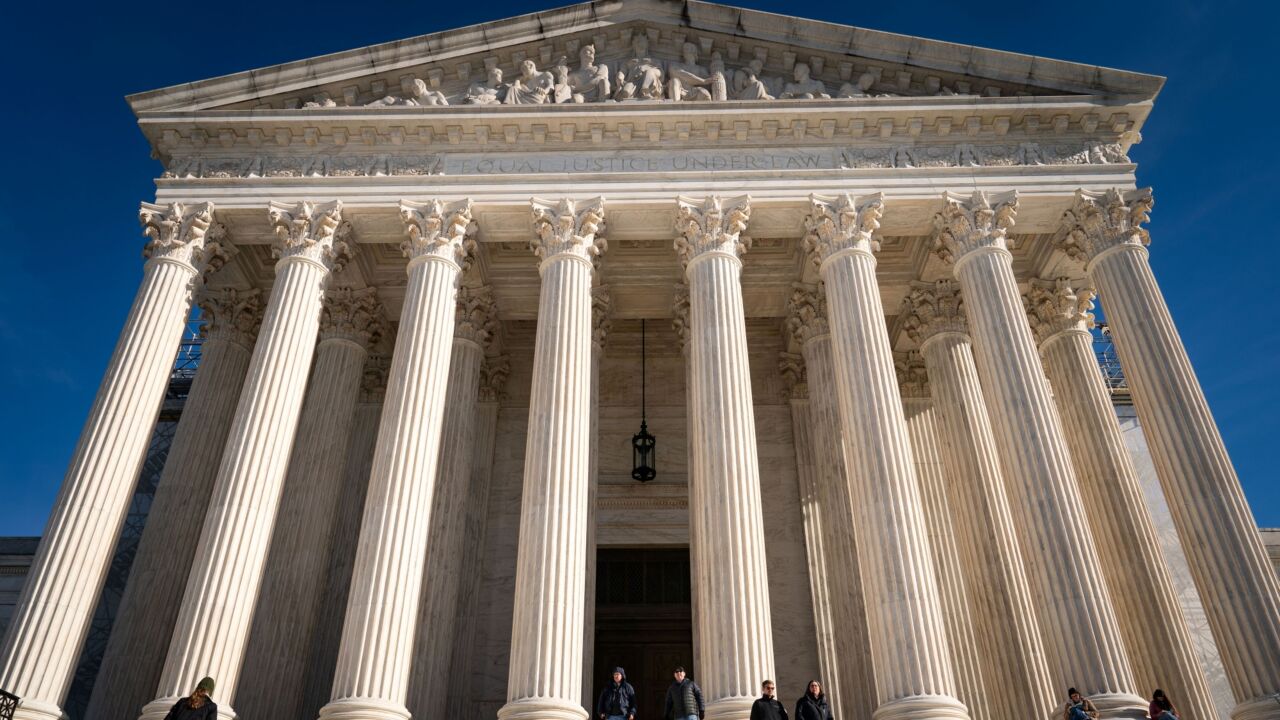In its third ruling on the case, the Supreme Court has come down on the side of California in California Franchise Tax Board v. Hyatt. denying a taxpayer's right to sue the state over its audit. The 26-year history of the case began as an audit procedure and evolved into a constitutional issue.
Gilbert Hyatt, a tech inventor and entrepreneur, moved from California to Nevada in the early 1990s. Hyatt claimed he moved in September 1991, while California claimed he didn’t move until April 1992. At stake was $7.2 million in patent royalties earned during that time. Nevada does not tax personal income.
Hyatt filed suit in a Nevada state court seeking damages for California’s alleged abusive audit and investigation practices. A Nevada jury verdict awarded Hyatt over $400 million in damages and fees. California appealed, arguing that the Constitution’s Full Faith and Credit Clause required Nevada to limit the award to $50,000, the maximum that the state would permit in a similar suit against its own agencies. The Nevada Supreme Court affirmed $1 million of the award and ordered a retrial on another damages issue.

In its 2016 decision, the U.S. Supreme Court was divided as to whether the case Nevada relied on for jurisdiction over the California Franchise Tax Board should be overruled, and therefore affirmed the Nevada court’s jurisdiction, but limited damages to $50,000.
In its third ruling on May 13, 2019, the court resolved its 4-4 split from 2016 when the court had only eight justices.
However, the ruling overruled a 41-year-old precedent in the case of Nevada v. Hall. “The immediate practical implications of Hyatt’s holding that states are wholly immune from suit in the courts of other states are limited because very few such suits currently proceed under the pre-Hyatt rules," said Charles Rothfeld, a partner in law firm Mayer Brown’s Supreme Court & Appellate practice. "But the decision nevertheless is significant for what it says about the Supreme Court’s broader approach to constitutional questions. It shows a willingness to overrule precedent even when there is no compelling need to do so. And because the court found that states are immune from suit even absent any express provision of the Constitution that creates state sovereign immunity, the decision demonstrates that even the conservative Justices sometimes will be willing to depart from 'textualism' in reading the Constitution.”
In its decision, the court endorsed state sovereign immunity, according to Tim Droske, a partner at the law firm of Dorsey & Whitney. “This was the third time this case went before the Supreme Court,” he said. “In the second time, the case was on review, the court was equally divided as to whether Hall should be overruled and thus affirmed the Nevada Supreme Court’s exercise of jurisdiction issued following Justice [Antonin] Scalia’s death and before Justice [Neil] Gorsuch’s confirmation. Now, with the court back to its full nine-member strength, it again granted review on the sole question of whether Hall should be overruled. Reaching the issue, however, required disregarding an argument that the law-of-the-case doctrine precluded the court’s review, finding that argument waived, while also finding that the California Board had not waived its immunity.”
Wider implications?
Some observers are concerned that the conservative majority’s overruling an established precedent in the tax case could pave the way for overturning decisions in other areas as well.
"The division between the five-justice conservative majority and four-justice liberal dissent can be seen as a potential preview of the role of stare decisis as to other constitutional precedents, including Roe v. Wade,” said Droske.
He noted that Justice Clarence Thomas’ summary of the majority’s justification for its holding could readily be adapted by the conservative majority to other precedents: “[Roe v. Wade] is contrary to our constitutional design and the understanding of [due process] shared by the states that ratified the Constitution[‘s] [Fourteenth Amendment]. Stare decisis does not compel continued adherence to this erroneous precedent.”
“Reflecting the future fight that may come before the court, Justice [Stephen] Breyer’s dissent expressly cites to the abortion decision Planned Parenthood of Southeastern Pa. v. Casey, 505 U.S. 833 (1992) for the importance of stare decisis,” said Droske. "Interestingly though, the majority opinion today relies on a theory ‘that the Constitution affirmatively altered the relationships between the states, while also acknowledging that “no constitutional provision explicitly grants this immunity.”
He pointed out that Justice Thomas, writing for the majority, specifically observed that, “There are many other constitutional doctrines that are not spelled out in the Constitution but are nevertheless implicit in its structure and supported by historical practice,” and highlighted examples such as “judicial review, intergovernmental tax immunity, executive immunity, and the president’s removal power.”
“But notably, no mention of substantive rights found under the Due Process Clause or other personal liberties were included in that list," said Droske.




